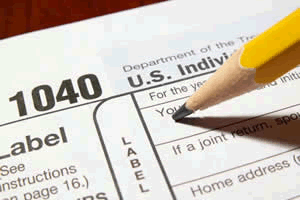What should I do if I can't afford to pay my tax debt when it is due?
When you finish preparing your federal income tax return, you may be shocked to find that you are not receiving a refund but rather owe the IRS. In fact, you may owe the IRS more money than what you can afford to pay.
If this happens to you, there are specific steps that you can take (and that you should avoid taking) to address your inability to pay. In addition, you can rest assured knowing that you are not the first person who has not been able to afford to pay their federal income tax to the IRS when it is due. Therefore, the IRS has options available to help individuals pay their federal income tax.
Following are some of the steps you should take if you can't pay your tax
-
File your federal income tax return on time
Even if you cannot afford to pay the tax debt you owe right now, you should still file your tax return on time. When you find that you cannot pay your federal income tax, there may be a temptation not to file your tax return or to file your tax return late. After all, if you wait and file your tax return late or even choose not to file your return at all, the IRS will not notice you owe them money as quickly, right?
Delaying the filing of your federal income tax return may mean you do not have to pay any tax debt owed as quickly as you would if you filed your return and paid your taxes when they are due on April 15. However, filing your return late or not at all will cause you additional financial issues you likely do not want to add on top of the tax debt you already cannot afford to pay.
First, if you file your federal income tax return late, the IRS will assess you a failure to file penalty. The failure to file penalty is 5 percent of the tax debt owed per month up to a maximum of 25 percent.
Second, if you do not pay any tax debt owed when it is due, the IRS will assess you a failure to pay penalty. The failure to pay penalty is .5 percent of the tax debt owed per month up to a maximum of 25 percent of the tax due.
Finally, the IRS will charge you interest on any unpaid tax debt at the rate of 3 percent per year.
Therefore, waiting to file your federal income tax return will simply result in you owing more money to the IRS, possibly 50 percent or more above the original tax debt owed depending on how long it takes for you to pay the IRS.
-
Ensure you do not have any assets you can use to pay the tax debt you owe.
While you may not have cash on hand to pay the tax debt owed when it is due, you should evaluate if you have anything else of value that you can sell or otherwise use to pay the tax you owe.
Do you have any assets you can sell to raise the cash you need? Assets could include furniture, jewelry, or computer equipment to name a few examples.
Likewise, are you paying for any luxury items that you can let go of to free up cash to pay the IRS? For example, you may be paying to have your yard mown when you could mow it yourself.
In summary, you should consider all legal options available to raise the money you need so that you can pay the tax you owe now, as waiting to pay the IRS will generally cost you more money the longer you wait.
-
Contact the IRS to ask for assistance in paying your tax debt
The IRS offers two primary programs to taxpayers who cannot afford to pay the tax they owe.
- An installment plan, whereby the IRS accepts payments over a number of months until the full tax debt owed is paid off.
- An offer in compromise, whereby the IRS agrees to settle the tax debt the taxpayer owes for less than the full amount owed.
It is worth noting that both programs require that the taxpayer go through a qualification process. The process to use these programs, especially an offer in compromise, can be quite stringent. The IRS will evaluate the taxpayer's income, expenses, and assets to determine if they qualify. However, the qualification process is in place to ensure the programs are not abused by individuals who do not truly need help in paying their tax debt.
In addition, note that in the case of an installment plan, the IRS will still assess penalties and interest on the unpaid tax debt until it is paid in full.
Related Pages
Previous Question
Should I use Standard or Itemized Deduction?Next Question
Who has to file a federal income tax return?Latest Question
Will my daughter inherit my debts when I pass?
Prior to the distribution of your assets and income, the courts will pay your debts.
Category: bankruptcy


